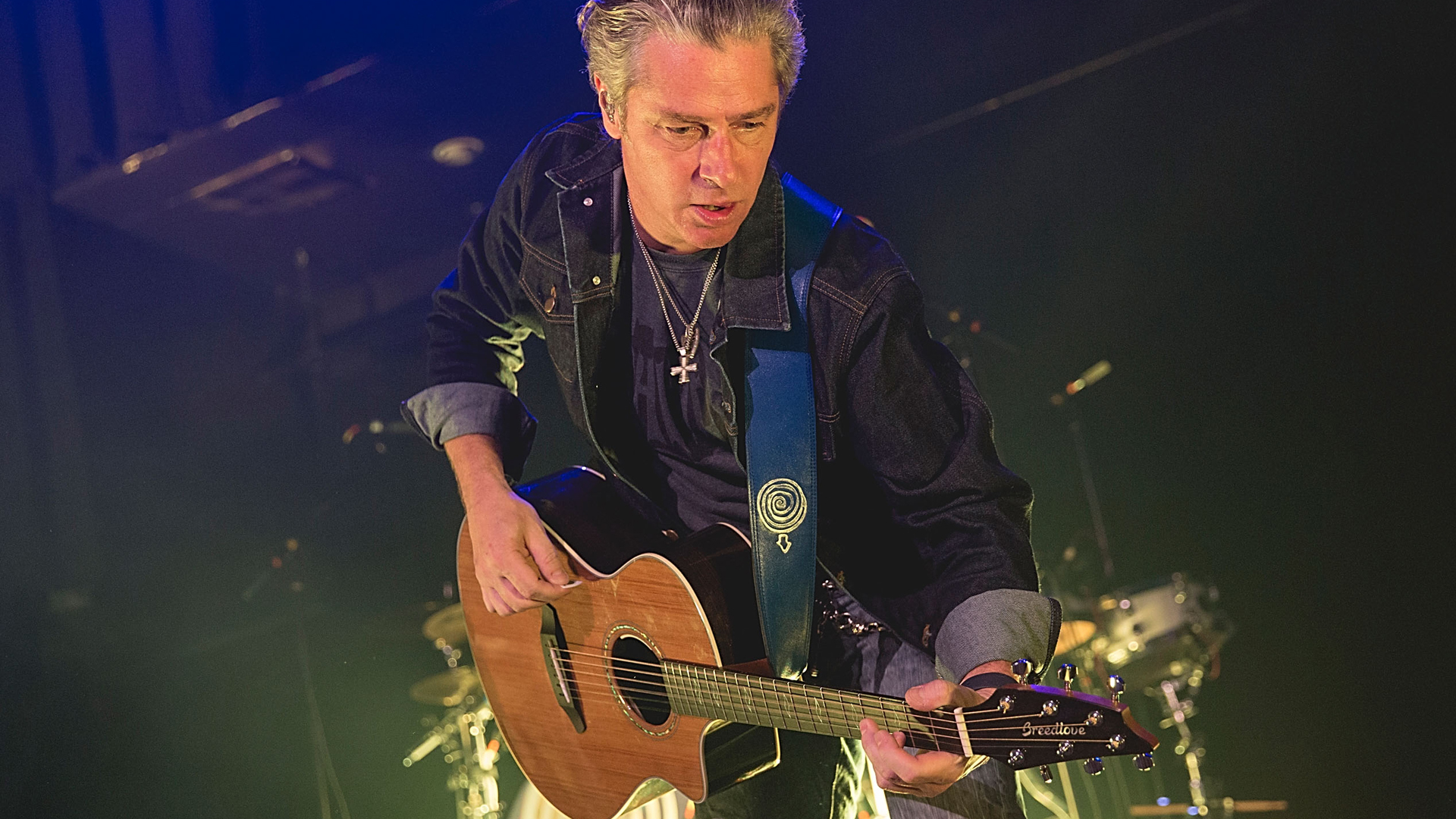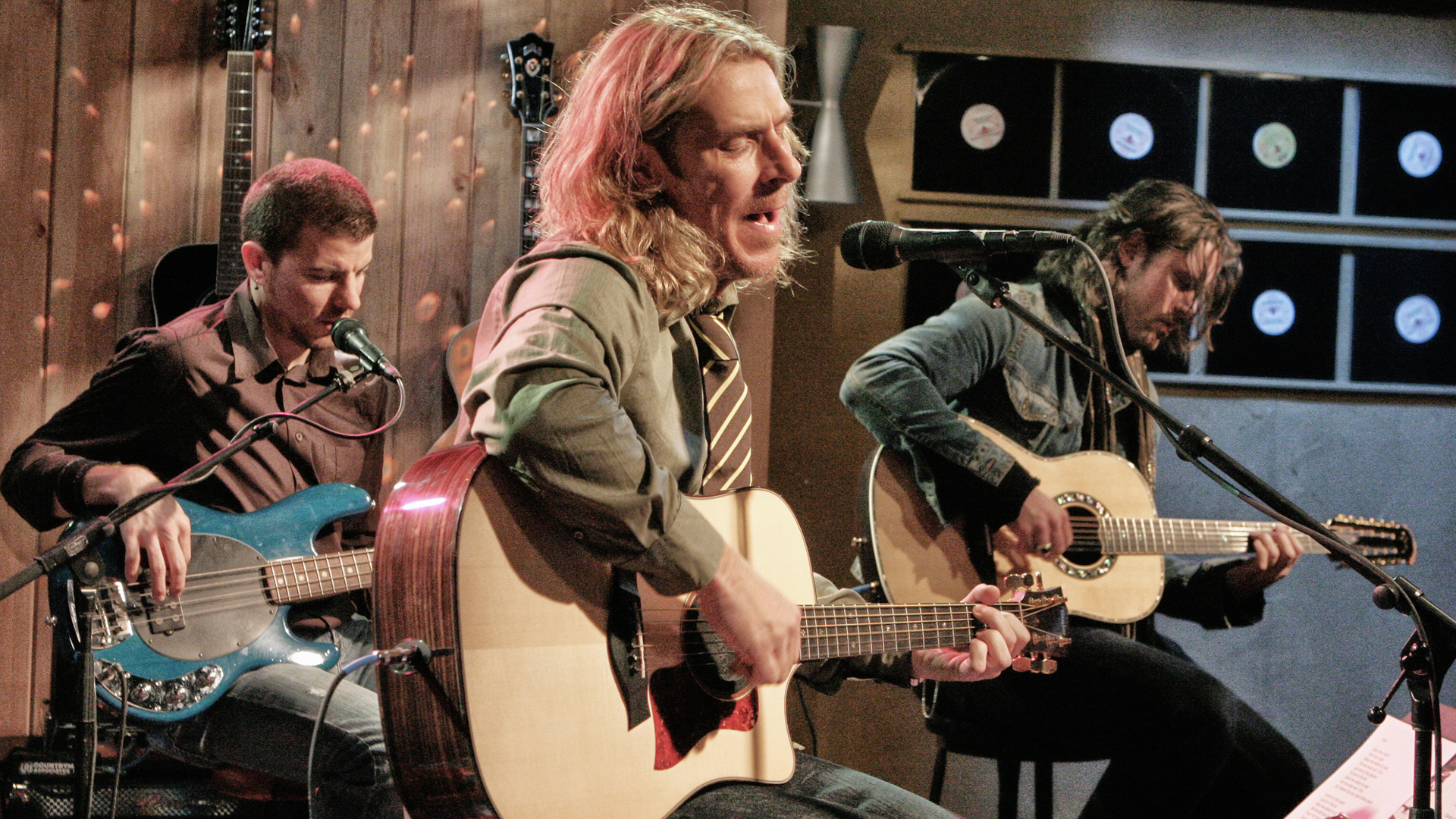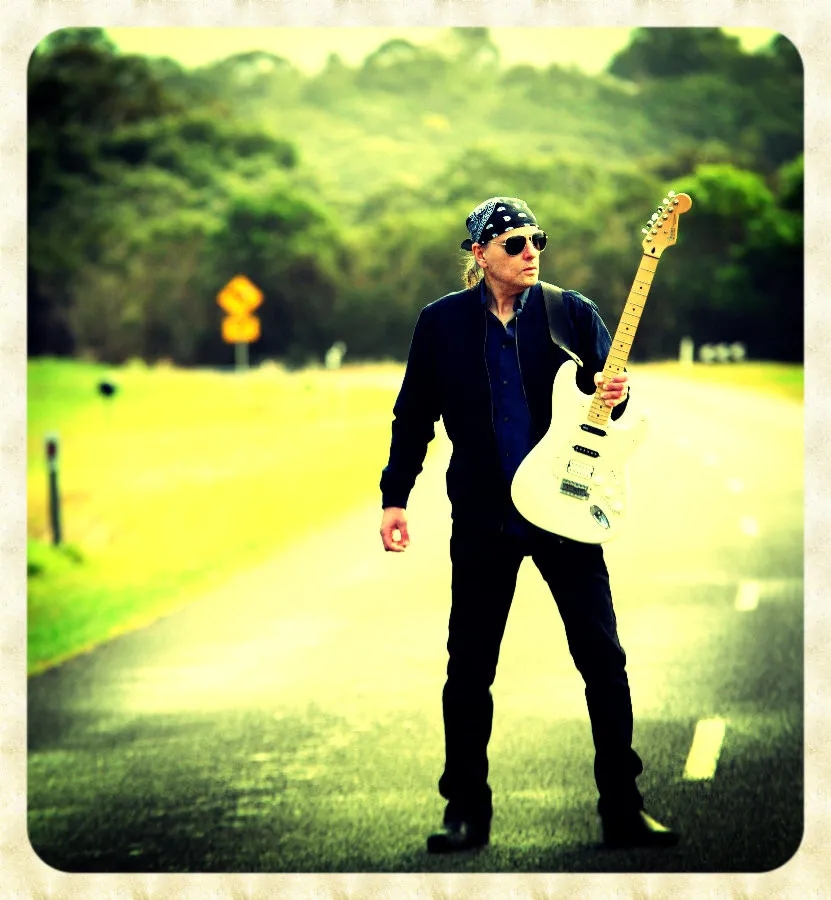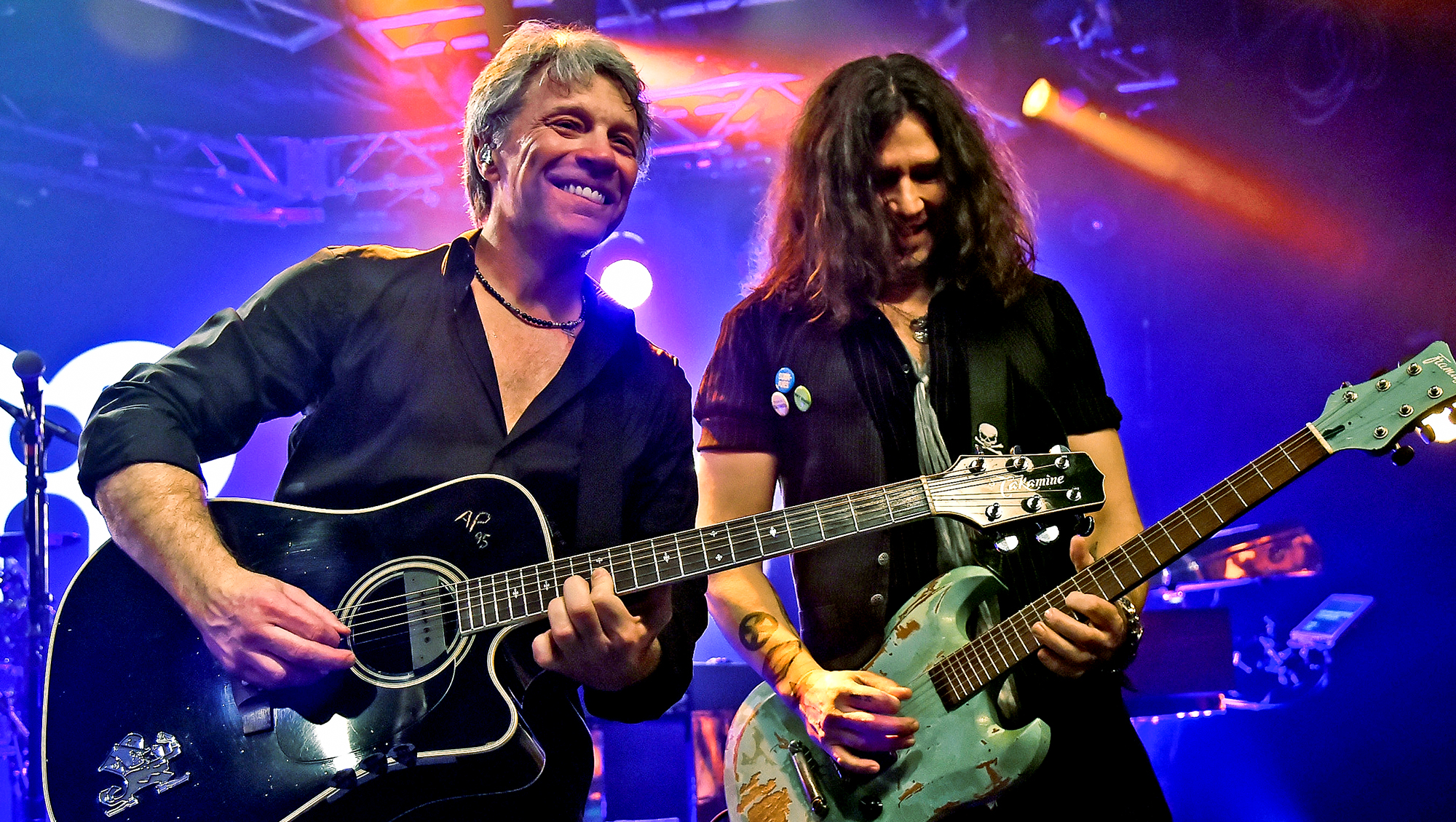“I took the only guitar I had, tuned it to drop D-flat and plugged that into a Soldano amp. I was just experimenting with what I had available.” How a Rickenbacker and an empty toilet paper roll created Collective Soul's grunge-rock breakthrough
Ed Roland says he was thrilled when Dolly Parton — of all people — covered "Shine" and won a Grammy for it

As one of 1994’s biggest songs, and one of VH1’s 100 Greatest Songs of the 90s, “Shine,” the debut single from Collective Soul, introduced the group to the grunge-music-loving masses. But, according to Ed Roland, the group’s vocalist, guitarist and songwriter, neither the group nor the song have a thing in common with grunge.
“We just happened to come out during the height of grunge,” Roland tells Guitar Player today. “To me, grunge was basically a northwestern sound from Seattle. We were down south in Atlanta, Georgia.
“‘Shine’ has a grunge-sounding riff, but it wasn’t grunge. We’d listened to a lot of classic rock on FM radio, so we really didn't get to hear any underground music, and later in life we got into punk and new wave, too. But our biggest inspirations were Elton John and the Cars.”
As Roland explains, “Shine” belonged to an early batch of demos he had made in his basement, recorded on an eight-track machine over a five-year period to secure a publishing deal.
“In the late ’80s I was writing a lot of what I call ‘drones,’ where I’d play an A or D string on the guitar and write riffs underneath using droning melodies,” he recalls. “I’d come home to see my folks, and my brother Dean was there playing guitar. So I sat there with him and showed off by playing the riff to ‘Shine.’ I didn't have any chords for it, so I just played the riff and created the whole song right there and then.”
When creating his demo, Roland found that sculpting the guitar tones for “Shine” was a matter of trial and error, given his limited resources. He experimented with the only electric guitar he had at the time. “A 1990 Rickenbacker, which I used to record the song,” he says. “It’s not a guitar that you usually associate with loud distorted tones. It's more of dangly sound for groups like the Byrds, Tom Petty, R.E.M. and bands like that. I tuned it to drop D-flat tuning, plugged that into a Soldano amp and recorded it to my eight-track recorder.”
“I’d play higher up on the neck or rake it near the bridge. I was just experimenting in order to make it work with what I had available.”
— Ed Roland
With his minimal setup and the even more minimal tools at his disposal, necessity became the mother of invention. “For the song’s ‘yeah’ part on the breaks, I wanted it to have a very limited tonal range,” he says. “But I had no effects. So instead, I just got a roll of toilet paper, took off all the paper and used the cardboard tube to record myself going ‘Yeah.’ I had just to make stuff up — in a basement!”
All the latest guitar news, interviews, lessons, reviews, deals and more, direct to your inbox!
To compensate for having just one guitar, Roland experimented with strumming and picking at different places along the length of the strings. “I’d play higher up on the neck or rake it near the bridge,” he explains. “I was just experimenting in order to make it work with what I had available.”
While the song’s riff made it sound a piece with grunge, “Shine” is also home to a blistering pentatonic-based guitar solo that has more in common with 1980s metal soloing.
“I replaced my original solo with one by our original lead guitarist, Ross Childress,” Roland says. “I didn't even know who he was at the time but because the rumor around town was that Ross could play guitar. I called him up and he came in one night. I asked if he wanted to try a solo on ‘Shine,’ so he grabbed his Les Paul and did it in two takes, then left the studio.
“You can hear a lot of Randy Rhoads in that solo and how he performed it. Randy was Ross’s hero.”

The collection of demos that included “Shine” would be issued as the group’s debut album Hints Allegations and Things Left Unsaid by local indie label Rising Storm in 1993. “Shine” soon became a popular staple on college radio and eventually secured the group a deal with Atlantic Records. To capitalize on the group’s momentum, the label reissued the debut album in its demo state. “Shine” climbed all the way to number 11 on the Billboard Hot 100 and became the group’s signature song.
But the song’s success led to a minor fallout. Smashing Pumpkins’ Billy Corgan accused Collective Soul of plagiarizing his band’s song “Drown.” Corgan sued but lost after Roland submitted his original demo, proving “Shine” predated “Drown.”
“I have to say, I love Billy and the Smashing Pumpkins and love listening to what he does,” Roland says. “But I wrote that song before he even had a band, so I don't know what he's upset about. In all honesty, I could be the one suing him. But I don't sue, as I don't care. I know people that know Billy who have told me he definitely won't talk to me. I don't know why, but that's his vibe, and that's cool.”
“I have to say, I love Billy and the Smashing Pumpkins and love listening to what he does. But I wrote that song before he even had a band."
— Ed Roland
Roland prefers to think about the song’s positive impacts, such as when country star Dolly Parton recorded a cover of “Shine” in 2001, for which she earned a Grammy Award for Best Female Country Vocal Performance. “I thought it was amazing, as she's one of the greatest songwriters,” Roland says. “For her to have the confidence to pick up another song from any songwriter, but much less me… I was like, ‘Wow!’
“And then to win a Grammy for it was just amazing. I may not have got the Grammy, and was never been nominated for a Grammy myself, but I don't care. Dolly Parton covered my song! I remember watching her on Porter Wagoner’s TV show years ago. Fast forward 20 years and she’s singing my song. That is kind of cool.”
Joe Matera is an Italian-Australian guitarist and music journalist who has spent the past two decades interviewing a who's who of the rock and metal world and written for Guitar World, Total Guitar, Rolling Stone, Goldmine, Sound On Sound, Classic Rock, Metal Hammer and many others. He is also a recording and performing musician and solo artist who has toured Europe on a regular basis and released several well-received albums including instrumental guitar rock outings through various European labels. Roxy Music's Phil Manzanera has called him "a great guitarist who knows what an electric guitar should sound like and plays a fluid pleasing style of rock." He's the author of two books, Backstage Pass; The Grit and the Glamour and Louder Than Words: Beyond the Backstage Pass.

